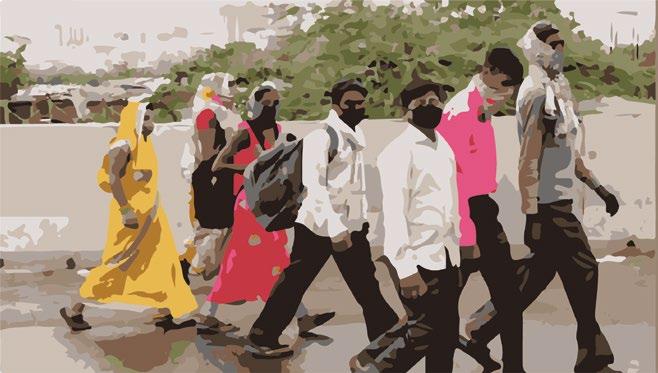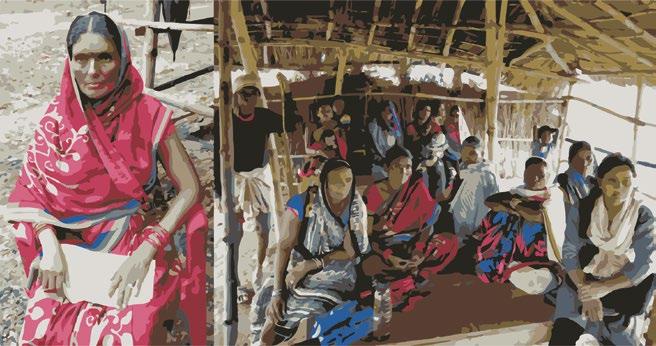The impending citizenship crisis in India The Citizenship Amendment Act (CAA) was passed by both houses of the Indian Parliament, without requisite debate, on December 9 and 11, 2019.2 The proposed amendments have drawn huge criticism since 2014 when they formed the basis of the Narendra Modidriven Manifesto of the Bharatiya Janata Party (BJP). For the first time in Indian law, defying Constitutional non-negotiables like the equality before the law and equal protection before the law (Article 14) and right to life with dignity and without discrimination (Article 21, 15-16),3 religion-based discrimination is being legitimized.
from these countries are not entitled to this fast track process and other neighbouring countries like Myanmar, Nepal and Sri Lanka are also excluded.4 The problem does not end here. Along with these amendments the threatened all-India National Register of (NRC) along with the National Population Register (NPR) could deal body blows to the country’s secular foundations. In fact, the aggressive tones used to electorally use this chronology of selective exclusion by none less than India’s Minister for Home Affairs, Amit Shah,5 where he even used derogatory terms like “termites” for refugees, not only revealed the true intent of the Modi government, but also spawned creative and spontaneous protests. In fact, to curtail these citizens voices, even before the COVID-19 pandemic and lockdown, emergency provisions were brought in.6
TheamendmentsinIndia’s1955Citizenship Act enables any person belonging to Hindu, Sikh, Buddhist, Jain, Parsi or Christian community from Afghanistan, Bangladesh or Pakistan, who entered India on or before December 31, 2014 to more efficiently, in a shorter span of time, This lethal combination of CAA +NPR+NRC get citizenship by naturalization. Muslims could cause social strife and generate
HUMAN RIGHTS IN INDIA - Status Report 2021 by IAMC
41




















